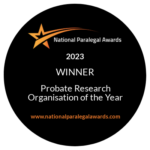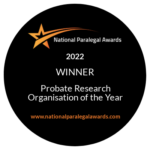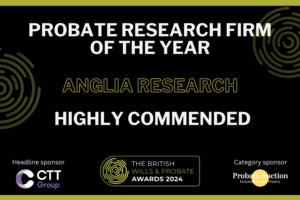How to keep away from copycats and avoid being phished

Read our quick guide and avoid being duped by copycat websites and phishing emails.
In 2015 the Bona Vacantia Division (BVD) of the Government Legal Department (GLD) issued the following warning:
There are a number of other websites and twitter feeds which, by use of such terms as bona vacantia, unclaimed estates or heir hunters, may lead people to wrongly believe that by accessing such sites they are using or contacting GLD/BVD whereas they are in fact contacting private “heir hunter” firms.
The only list published by BVD of unclaimed estates is the BVD unclaimed estates list.
However, the problem of copycat websites still persists.
A Google search for “bona vacantia” generally returns over a 100,000 results. On the first page of results, you’ll usually find an advertisement, followed by links to the Government’s own bona vacantia website, Wikipedia and at least three copycat websites, eager to gather your details.
Your intention may be to report an intestacy to BVD, or to check the list of unclaimed estates for the name of a distant relative.
However, if you click the wrong link, you risk passing information to a private business, rather than to the Government Legal Department.
Avoid the copycats
- Beware Google advertisements The Government’s Bona Vacantia Division never advertises on Google – but heir hunters with copycat websites do. Don’t click on the advertisements.
- Always go to a trusted source To download the latest list of unclaimed estates, go to the Government’s official bona vacantia website. To claim a share of an estate use this page, and to refer a death of an intestate person with no next of kin use this page.
- Check the URL Don’t be fooled by the text and graphics on a website. Web developers are sophisticated. While seeking to stay within the law, they will sail as close to the wind as they can, mimicking the colour palette, typography and sometimes even graphic elements of the Government’s web domain. Always double check a website’s address in the address bar at the top of your screen. All official government URLs begin www.gov.uk.
Don’t get phished

fish in cages fisherman
Phishing emails are sent by fraudsters posing as probate researchers or even as the Government’s Bona Vacantia Department (see the BVD’s most recent warning here).
Typically the email will inform you that you are a beneficiary to an intestate estate. It may be from a fraudster after your bank details. It may be from a legitimate company seeking to reunite you with an inheritance. How can you tell?
Should you receive an email claiming you are the beneficiary of an inheritance, it’s best to approach it with suspicion.
- Only scammers ask for money up front If they ask for money, or your bank details, they are trying to defraud you. Report the email as spam to your internet service provider.
- Do some research Before you click any links in the email, or hit “reply”, search the internet for the company name you have been given. Is it registered with Companies House? Does the company have a website? Is it clear and informative enough to be worthy of your trust?
- Check the email account Take a look at the sender’s email address. Depending on your email server, this is usually visible in the top left hand corner of the email. If the email is from a public account, like Hotmail or Gmail, but claims to be from an official source, or from a business, do not trust it. For example, if the email claims to come from Anglia Research, simply check our people to see if the email address, and its sender, match up. If they don’t, it’s not from us.
- Check phone numbers Nowadays you can put a landline number into a search engine such as Google and it will tell you where the telephone is located. Does the location of the landline match the company information that you have been given?
- Check links Hover your cursor over any links in the email. The true link address will generally appear under your cursor or at the bottom left of your screen, allowing you to verify that the true link directs to the same place as the apparent link.
Follow these rules and stay safe.
If you are worried about a phishing email claiming that you are a beneficiary, or if you have been duped by a copycat website, let us know. We don’t claim to police our industry, but we are troubled by the state it is in and will do everything we can to improve it.
2025 Anglia Research Services All Rights Reserved.
Anglia Research and Anglia Research Services are trading names of Anglia Research Services Limited, a company registered in England and Wales: no. 05405509
Marketing by Unity Online









